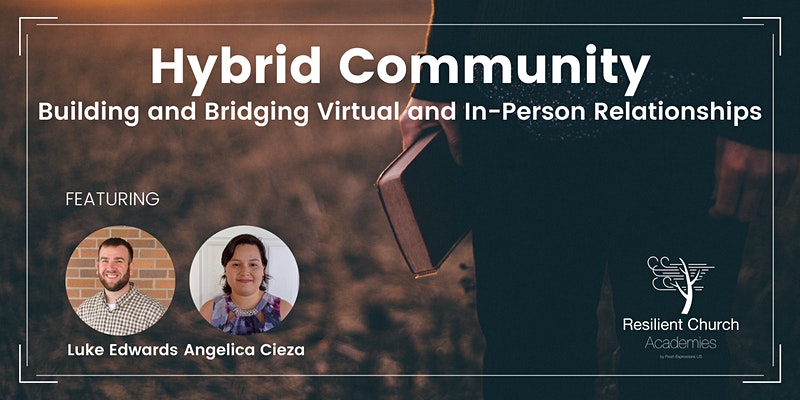The church has moved online. And this year has taught us that some aspects of church are harder than others to practice on the internet.
When I ask folks what they have missed most about church this past year it’s the fellowship, the relationships, the sense of life together.
Rowan Williams notes,
“Church is what happens when people encounter Jesus—that is, they don’t just encounter Jesus as an individual, they encounter him with others, with community. And when that company comes into being you’ve got church.”
Online worship void of community is not a complete picture of church. Church is not a production to be consumed (in-person or online), it is a people gathered around the risen Christ, worshiping God together.
Online worship void of community is not a complete picture of church. Church is not a production to be consumed (in-person or online), it is a people gathered around the risen Christ, worshiping God together.
Tweet this.
Therefore, an essential question for the church in this moment is how can we create community online?
To help answer this question I want to highlight three churches that are building online community well in my little slice of the world here in western North Carolina:
-
Checkpoint Church – Twitch and Discord
Nathan Webb is a United Methodist church planter and self-proclaimed nerd and gamer. Nathan uses Twitch, a streaming platform, for reaching out to new people, leading conversations about recently released games and all kinds of other nerdy topics. These streams can have as many as 450 people watching and participating. From there he looks to connect his new friends into the church Discord, a community platform and app, and what he calls “our virtual church building.” Currently, there are about 30 active members of the church Discord. Nathan is quick to point out that building relationships is essential to every online ministry.
Learn more about how Nathan is building community online here.
-
Mill Grove UMC – Facebook Page and Facebook Group
Just outside the Charlotte beltway in Indian Trail, NC is Mill Grove United Methodist, a church that averaged about 150 folks in worship on Sundays before the pandemic. They have a simple, yet highly active Facebook presence. Mill Grove’s Facebook page acts as a landing page, a place to find information and the worship live stream, but the real action can be found in the church’s Facebook group. With the name “Mill Grove UMC Community” they are using the group exactly the way it was designed. With an average of four posts a day, it’s an extremely active community. Pastor Hugo Villagrana posts regular greetings to his congregation, church members post announcements, the children’s ministry posts devotions, and recently an older member’s birthday was celebrated. Facebook groups are a simple, highly effective tool for building an online community, and yet many churches are only using pages that have very limited reach.
Learn more about Facebook Groups in this interview with Nona Jones here.
-
Salem UMC – AltspaceVR
Salem United Methodist is one of those churches that seems like it starts a new fresh expression every month. It’s a church bursting with creativity and their latest venture could be their most out-of-the-box idea yet. Pastor Sam Burleson and team have created a Virtual Reality (VR) fresh expression that gathers around story telling. It’s similar to a Moth Radio Hour, where each gathering has a topic and attendees have an opportunity to share a personal story about that topic. For those unfamiliar with VR, it involves wearing special head-mounted displays (think futuristic goggles), that bring you into a virtual world where you can interact with people from across the planet. The Salem UMC team has been amazed at how quickly a sense of community has been built in their VR fresh expression. One attendee in a moment of vulnerability shared a painful story about his family history. He was immediately surrounded by others in the group who offered him support and care.
If you would like to learn more about VR ministry read about one VR church here.
Conclusion
The internet offers us countless opportunities to create community with our church members and neighbors. Even as in-person gatherings start to resume we can’t dismiss this missional frontier. The church must always venture farther and farther into the world which Jesus loves, inviting our neighbors into beloved community.
Even as in-person gatherings start to resume we can’t dismiss this missional frontier.
Tweet this.
If you would like to learn more about how to create an online community for your church sign up for Hybrid Community, a Resilient Church Academy Course offered by Luke Edwards and Angelica Regalado-Cieza. Register here.



